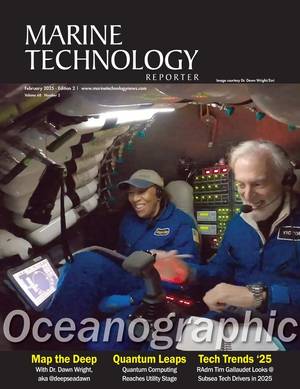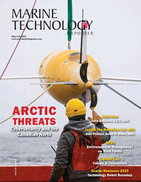
UNOLS Deep Submergence Science Committee: Call for Nominations
interested in recruiting a new member with expertise in geological oceanography to balance the current range of specialties represented on the committee.Terms of office are three years, with the possibility of re-appointment for a second term. The DeSSC members participate in a spring meeting at Woods Hole Oceanographic Institution and there is a community meeting prior to either the annual AGU or Ocean Sciences meetings each year. Virtual participation in these meetings is possible but not encouraged. Nominees should submit a brief statement of interest in serving on DeSSC as well as a 2-page
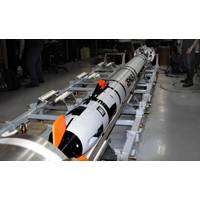
REMUS 620 UUV Validated for Torpedo Tube Deployment
A joint team from HII, Woods Hole Oceanographic Institution (WHOI), and U.S. Navy’s Naval Undersea Warfare Center Division Newport (NUWCDIVNPT) recently completed a milestone in advancing the U.S. Navy Submarine Force’s initiative to launch and recover autonomous undersea vehicles from submarine torpedo tubes.A test by the joint team confirmed the compatibility of the REMUS 620 with the SAFECAP, Virginia-class submarine weapons handling and torpedo tube systems, and other critical interfaces.HII’s next-generation medium uncrewed underwater vehicle (MUUV) fitted with WHOI’s
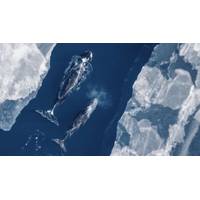
Whale Fecal Samples Link Ocean Warming to Rising Algal Toxins in Arctic Waters
Rising toxins found in bowhead whales, harvested for subsistence purposes by Alaska Native communities, reveal that ocean warming is causing higher concentrations of algal toxins in Arctic food webs, according to new research published in the journal Nature.Researchers from the Woods Hole Oceanographic Institution (WHOI) were a part of the multi-institutional, multi-year study that focused on this critical issue, which threatens food security for coastal communities that rely on marine life, including clams, fish, and whales, for food and other resources. Communities in Alaska are now asking researchers

New AUV Helps Document Critical Minerals
are filling in the details of the map and building knowledge of where seafloor minerals may be found and their geologic and oceanographic setting,” said Amy Gartman, lead of the USGS Global Seabed Mineral Resources Project.A predecessor to Orpheus Ocean’s AUV was originally developed by the Woods Hole Oceanographic Institution (WHOI) and NASA’s Jet Propulsion Laboratory, and its evolution from prototype to operational vehicle has been supported over several years by NOAA Ocean Exploration and OECI.Orpheus Ocean, a startup company founded in 2024, aims to expand access to these unique,
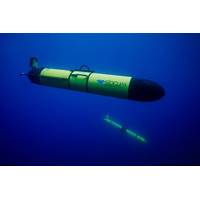
Teledyne Marine to Host Slocum Glider User’s Conference
The global oceanographic community is invited to gather in Woods Hole this fall for the Slocum Glider User’s Conference, taking place October 7–9, 2025. This three-day event will bring together Slocum glider users, marine scientists, engineers, and dignitaries for an exchange of knowledge, innovation, and mission collaboration.The conference will culminate in the official launch of the Sentinel Mission on October 10, featuring REDWING, the first autonomous underwater glider that will embark on the first ever AUV mission to autonomously circumnavigate the globe.Conference Highlights:Expert
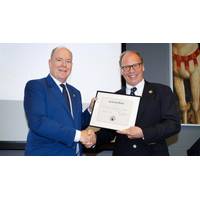
WHOI Presents Centennial Medal to His Serene Highness Prince Albert II of Monaco
The Woods Hole Oceanographic Institution (WHOI) presented His Serene Highness Prince Albert II of Monaco with its inaugural series Centennial Medal, in recognition of his extraordinary work to raise awareness, inspire action, and advance ocean science and technology for the global good. The award was made at the third United Nations Ocean Conference (UNOC), currently underway in Nice, France.His Serene Highness has demonstrated his passion for conservation through the establishment of foundations that confront global environmental challenges head-on by raising funds, initiating action, establishing
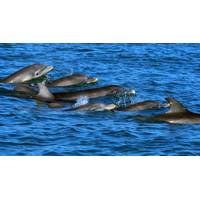
Researchers Awarded for Identifying Possible Language-Like Communication in Dolphins
Researchers at the Woods Hole Oceanographic Institution (WHOI) and partner institutions, including the Brookfield Zoo Chicago’s Sarasota Dolphin Research Program (SDRP), are the winners of the inaugural Coller Dolittle Challenge for their work in identifying possible language-like communication in dolphins.The Jeremy Coller Foundation and Tel Aviv University made the announcement of the $100,000 prize during a virtual event with four shortlisted teams of researchers from the USA, Germany, France, and Israel showcasing their remarkable discoveries in communication with monkeys, nightingales
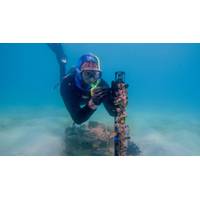
The Soundscape Code
is now recognized as an Essential Ocean Variable by the Global Ocean Observing System, and the rapidly growing capacity for recording underwater acoustic data highlights the need for standardized collection, analysis and reporting.AI is already being used to help analyze acoustic data. Researchers from Woods Hole Oceanographic Institution published a study earlier this year describing how they combined acoustic monitoring with a neural network to identify fish activity on coral reefs by sound. Their algorithm can match the accuracy of human experts in deciphering acoustical trends on a reef and do it over

WHOI: New Discovery Reveals Sharks May Detect and Produce Sound
, and vision through the ocean’s dim light. Their ability to detect and produce sound may have been overlooked, though. “Look up sharks, and nothing mentions sound production—they have been thought to be ghostly silent,” says Carolin Nieder, a postdoctoral investigator at the Woods Hole Oceanographic Institution (WHOI). Studying sharks is not easy, though, as they are elusive in their natural habitats and have rarely been studied up close or while being handled.Nieder was originally conducting research at the University of Auckland on how different types of sharks detect the direction
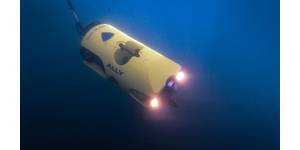
 February 2025
February 2025
